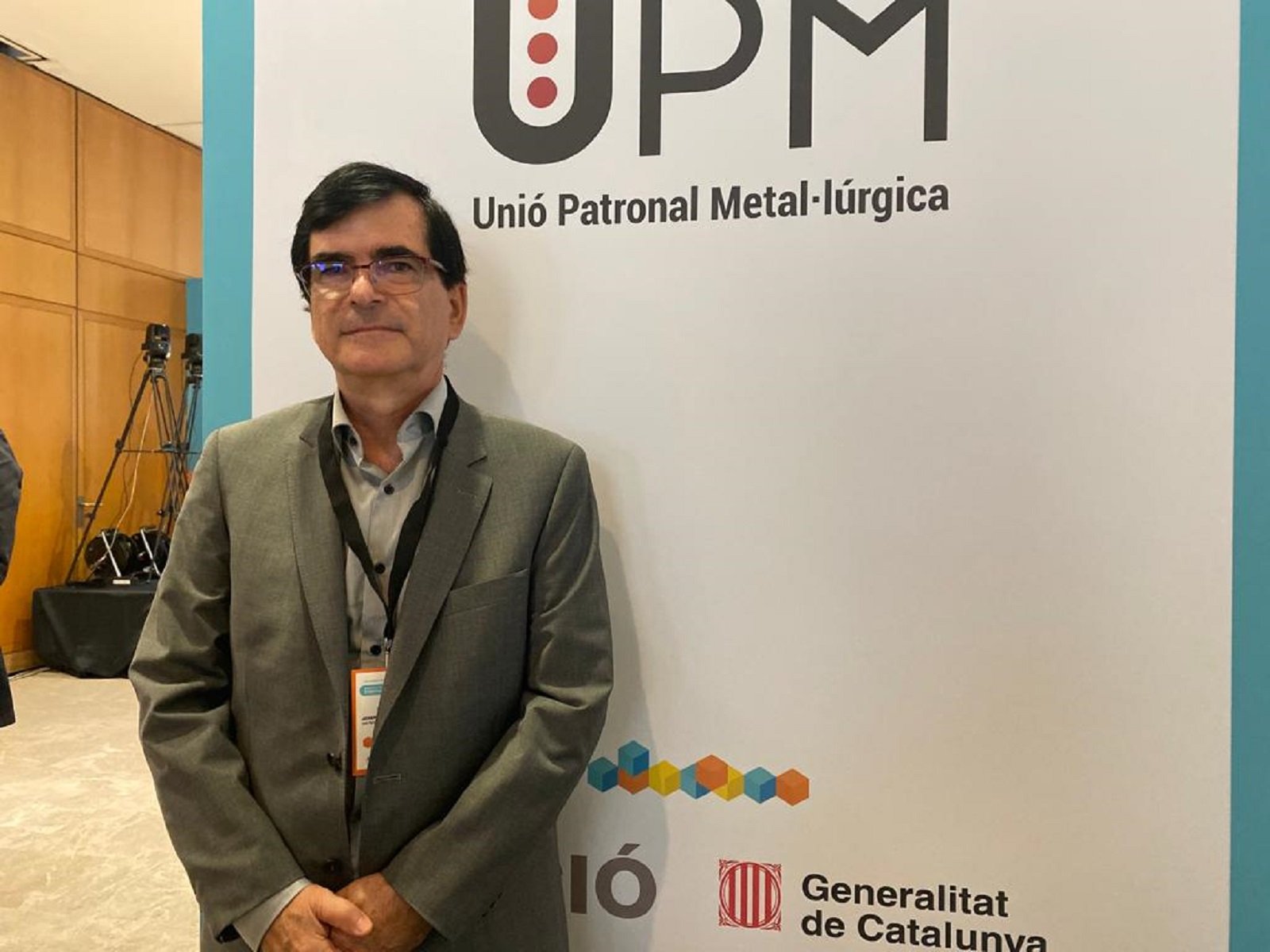As part of the Internationalization Week promoted by Catalonia Trade & Investment (in Catalan, ACCIÓ) at the World Trade Centre in Barcelona, ElNacional.cat talks to Josep Maria Campanera, an internationalization specialist with a career of more than forty years behind him, from textiles to metallurgy where he works at the moment. At Plametall, the internationalization arm of the Metallurgical Employers' Association (UPM), he analyzes business economics from the point of view of Catalan companies seeking to export and discusses how their activity is affected by the current economic crisis.
Did the Covid pandemic have a negative effect on the exports of Catalan companies?
It depends on how you look at it. You learn to diversify and it also helped many developing countries where there are great business opportunities to catch up in terms of digitization, so that the joint and parallel work we can do is more enriching. On the other hand, we've straightened out our exports with a change in business model that involves doing more virtual interviews and means that you maintain ties beyond the days that you are there, in the final country, in person.
Another thing would be the war in Ukraine...
Yes, the OECD itself has already said that the GDP in general terms of the European Union will lose 1% this 2022 on average, and that's without even entering specific cases of each country. A war like this definitely does no one any favours. Neither are certain policies being pursued by some countries, without going any further, looking at the rupture that Spanish prime minister Pedro Sánchez carried out in relations with Algeria in favour of Morocco. It is not just about securing the gas, which is the case at the moment but we will see in the future. Also, the business that has been interrupted halfway through because of this decision.
If we look at the scale, is Spain the largest potential market for Catalan firms?
Again, I would say it depends on how you look at it. It's about not putting all your eggs in one basket and we know that the Spanish domestic market is limited, although also interesting. Now, I would tell you that France is more interesting and this is where any entrepreneur directs their gaze when they first start their internationalization. Just looking at the aspect of distance, in Catalonia you are closer to certain French regions than to Andalusia or Extremadura. Later would come the Mediterranean basin, the whole of the European Union and, finally, the rest of the world.
Countries like Ghana or Senegal are really interesting
And in this changing world, what opportunities are you seeing?
You'd be surprised, but right now, West Africa is coming up very strongly. Countries like Ghana or Senegal, very recently we knew that they were on this continent, but we barely knew how to place them more precisely. The Catalans have been able to enter this type of market progressively and they must be taken into account because they are now starting to develop industrially.

This year, with the UPM you've travelled to Cuba, Israel, India, Vietnam and Kazakhstan. What's the craziest journey you've ever had?
There are many anecdotes, but I would stick with the trips I made decades ago to Southeast Asia. Before, that sort of trade mission could last up to three weeks or a month; now, even one week is too long!
The Catalan businessman knows what he wants
What would be the most interesting product that Catalonia has to export right now?
A few years ago I would have told you that the automotive industry, but with the Nissan crisis and the general decline that this sector has experienced with the microchip crisis, it is no longer the leader. Currently, Catalonia is very powerful in terms of machinery, metal, and also chemicals. The Catalans have always stayed ahead of the rest of the Spanish communities in their exporting aspirations. Despite having more imports, we also lead the other side of the coin.
You've now returned to the face-to-face missions that were interrupted by the pandemic, do entrepreneurs know what they want when they travel?
Yes, that's why the trips we propose have a personalized agenda of contacts, a specialized person with knowledge of the area, a strategic plan and many other elements that cannot be replicated for a whole group. I would also like to highlight the importance of trade fairs as the connecting link for the whole business which, at the moment, has also taken centre stage due to the entry of technology and as a way of giving the best letter of presentation for all of us.

